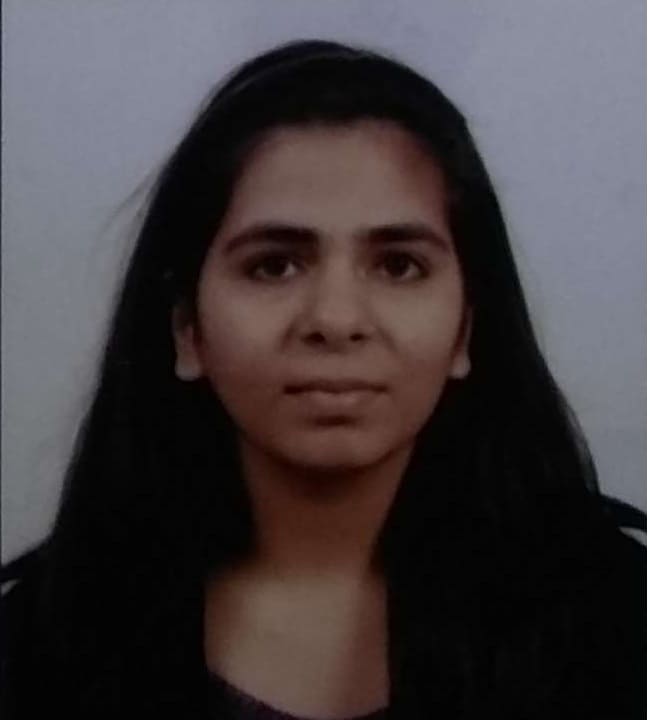MA Economics Online Coaching and Test Series
Starts 25 June 2025 !
MA Economics Entrance Online Course and Mock Tests, targeting CUET PG Economics, ISI MSQE, IIT JAM Economics, IIT GATE Exam, and other similar exams !

Online Courses MA Economics Entrance Exam
Explore online courses for CUET PG Economics Exam, IIT JAM Economics Exam, ISI MSQE Exam
What Differentiates our MA Economics Coaching?
MA Economics Exam Expertise
Quality Content
No Misleading Marketing !
MA Economics Entrance : Everything You Need to Know !
CUET PG Economics MA Economics Entrance Coaching
How can I get admission in MA Economics Course in India ?
Admission in MA Economics course in India is based on the results of entrance exam. Depending upon which college you want to enroll in for MA Economics, you will have to appear for an entrance exam.
CUET PG Economics : Delhi School of Economics, Jawaharlal Nehru University (JNU), Indira Gandhi Institute of Development Research (IGIDR), and many other.
IIT JAM Economics Exam: For admission into IITs for MA Economics
ISI MSQE: For Admission into Indian Statistical Institute (ISI) Master’s in Quantitative Economics (MSQE) Course
Other Universities conduct their own exams. The list includes IIFT, etc
Through CUET PG Economics Exam, which colleges accept admissions in MA Economics course ?
Admission into the MA Economics Course through CUET PG Economics Exam can be taken in the Universities such as University of Delhi (Delhi School of Economics, DSE), Jawaharlal Nehru University (JNU), Indira Gandhi Institute of Development Research (IGIDR), Banaras Hindu University (BHU), Delhi Technological University (DTU), etc.
Which are the best colleges for pursuing MA Economics in India ?
The best colleges for MA Economics include Delhi School of Economics, Jawaharlal Nehru University (JNU), Indira Gandhi Institute of Development Research (IGIDR), Indian Institute of Technology (IITs), Indian Statistical Institute (ISI), etc.
How to get admission in Delhi School of Economics, JNU and IGIDR for MA Economics ?
Admission into MA Economics course at Delhi School of Economics (DSE), Jawaharlal Nehru University (JNU), Indira Gandhi Institute of Development Research (IGIDR) happens through CUET PG Economics Entrance Exam
Out of DSE, JNU and IGIDR, which University is better for MA Economics Degree.
RBI DEPR Eligibility includes A Master’s Degree in Finance (or any other master’s degree where “Finance” is the principal constituent* of the curriculum / syllabus, namely MA / MSc in Quantitative Finance, Mathematical Finance, Quantitative Techniques, International Finance, Business Finance, Banking and Trade Finance, International and Trade Finance, Project and Infrastructure Finance, Agri Business Finance). “Principal constituent” with respect to syllabus / curriculum means half or more of the total courses / electives / credits must be in Economics or Finance.
DSE VS JNU VS IGIDR VS ISI for MA / MSc Economics Course ?
DSE, JNU and IGIDR are all top Universities to pursue MA Economics from India. A candidate with a high CUET PG Economics score getting admission in all of these institute will have to choose one based on what the candidate’s career plans after MA Economics Course.
What are the career options after MA Economics Degree?
To be eligible for the RBI DEPR Exam, you should have completed (result should have been declared) the minimum educational qualification before the cut-off date specified by RBI in the RBI DEPR Official Recruitment Notification of that year.
What is CUET PG Economics MA Economics Entrance Exam Syllabus ?
RBI DEPR Phase-1 Exam Syllabus includes Master’s level topics covered under Basic Statistics, Econometrics, Microeconomics, Macroeconomics, and Indian Economy. For RBI DEPR Phase-2 Examination, candidates have to cover the same subjects from the point of view of a descriptive examination.
Candidates should prepare the detailed RBI DEPR Exam Syllabus for cracking the exam in the next attempt.
How to prepare for MA Economics Entrance Exam ?
The RBI DEPR Exam process is divided into 2 Phases and 4 Papers (2 papers at Phase-1 and 2 Papers at Phase-2), each of 100 marks and 2 hours duration. At Phase-1, candidates have to answer an objective paper on Economics and an English (descriptive) paper.
The candidates who qualify RBI DEPR Phase-1 Exam will have to appear for Phase-2. At RBI DEPR Phase-2 Exam, candidates will be tested in 2 Descriptive Papers : (i) Microeconomics and Macroeconomics (ii) Quantitative Economics and Indian Economy.
The candidates who qualify RBI DEPR Phase-2 will be shortlisted to appear for an interview before the RBI Services Board.
The final selection / merit list will be prepared on the basis of marks scored by candidates at RBI DEPR Phase-1 Exam (Max Marks: 200), RBI DEPR Phase-2 (Max Marks: 200) Exam and Interview (Max Max: 75).
Which is the toughtest subject under MA Economics Entrance Syllabus ?
For the RBI DEPR Exam, most candidates find the Statistics and Econometrics subject more challenging than the other subjects. You may be happy to know that Testonomics offers the best coaching for RBI DEPR Statistics and Econometrics subject
What is Eligibility criteria for CUET PG MA Economics Entrance Exam ?
The RBI DEPR Exam differs to a great extent from the Delhi School of Economics M.A. Economics / M.Phil Economics / PhD Economics Entrance Examinations. In particular, the RBI DEPR Exam is relatively less difficult. Also, RBI DEPR Exam contains 3 descriptive papers as well.
Which universities accept MA Economics Admissions through CUET PG Economics score ?
For a candidate starting from scratch, a dedicated preparation of 6 months is recommended before appearing for the RBI DEPR Examination.
I am pursuing Economics Hons. right now. When should I start preparing for MA Economics Entrance exam ?
If your preparation of UPSC Indian Economic Service Exam syllabus is sound, then you can begin attempting the RBI DEPR Mock Tests to familiarise yourself with the RBI DEPR Exam Pattern and the kind of questions being asked at RBI DEPR Exam in recent years.
How should I begin preparation for CUET PG Economics MA Entrance Exam
The UPSC CSE Economics Optional Syllabus and Exam Pattern places much lesser weightage on numerical-based questions, including those from Statistics & Econometrics ! In contrast, for RBI DEPR Exam, numericals form an important part of syllabus and exam pattern.
Hence, you should prepare Mathematical Economics, Statistics and Econometrics in addition to UPSC CSE Economics Optional Syllabus. In case you need assistance in preparing any subject from the RBI DEPR Exam Syllabus, remember that Testonomics provides the best online course and Mock Tests for RBI DEPR Exam.
After preparing the RBI DEPR Exam Syllabus, you can begin attempting the RBI DEPR Mock Tests to familiarise yourself with the RBI DEPR Exam Pattern and the kind of questions being asked at RBI DEPR Exam in recent years.
What was the RBI DEPR Exam Selection cut-off last year?
For RBI DEPR 2023 Exam, the cut-off was 41.00 marks (out of 100) in Phase-1, 191.67 marks (out of 300 marks) in Phase-2 and 255 marks (out of 375) for final selection. The previous years RBI DEPR Exam cut-off can be found here.
Why is RBI DEPR Exam considered tough ?
What makes RBI DEPR Exam tough is that a few thousand candidates from the Top Economics schools across India and the world compete for a handful of vacancies after extensive preparation and practice ! Thus, it is the selection of the better among the best !
IIT JAM Economics MA Economics Entrance Exam
Item #1
Item #2
Item #3

MA Economics Entrance Exam Preparation In Your Fingertips
Testonomics Video Courses for MA Economics Entrance Exam are available only on the App (which can be installed only on a mobile phone / tablet). The Test Series can be accessed only through a Laptop / Desktop.
iOS Users should download the Classplus App and use VSSPM as Organisation Code while login.
Interview Transcripts RBI DEPR and Indian Economic Service
-
-
October 26, 2024
-
-
October 26, 2024
-
-
October 26, 2024
-
-
October 26, 2024
-
-
October 26, 2024
-
-
February 12, 2024
-
-
January 31, 2024
-
-
October 30, 2022
-
-
October 29, 2022
-
-
October 28, 2022
-
-
October 28, 2022













